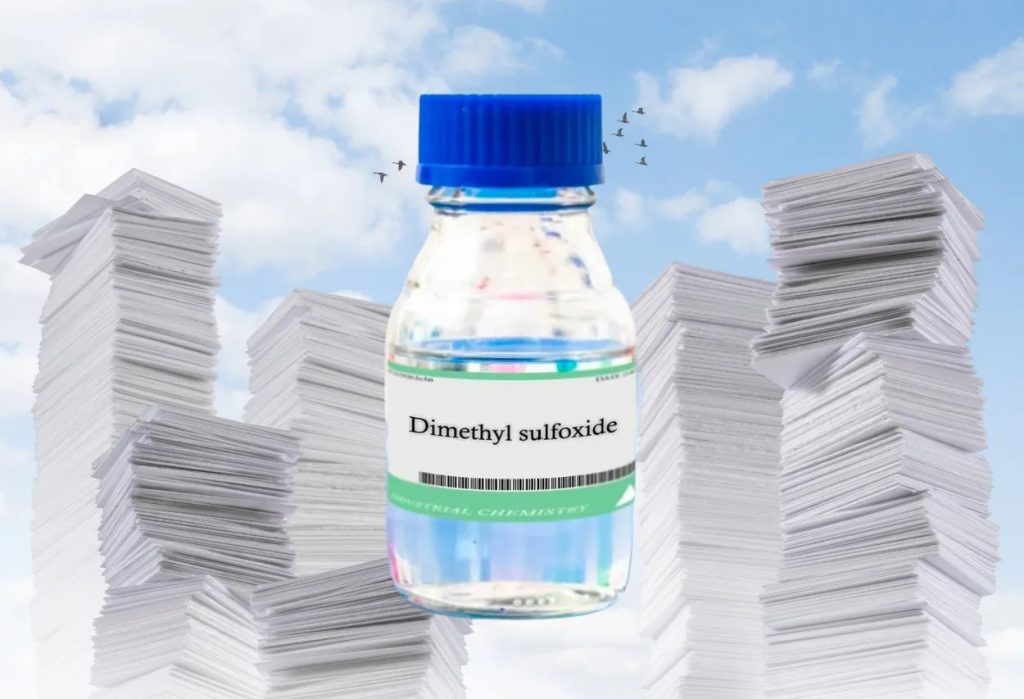DMSO: The Natural Compound That Heals and Fights Disease
DMSO (Dimethyl Sulfoxide) is a powerful, yet controversial compound with a rich medical history. Originally developed as an industrial solvent, it has since gained attention for its potential to treat pain, inflammation, neurological disorders, and even cancer.
What is DMSO?
DMSO is a byproduct of paper manufacturing, derived from wood pulp. Despite its industrial origins, DMSO is a naturally occurring organic sulfur compound with unique properties. It is colorless, penetrates the skin rapidly, and can carry other substances with it—earning the nickname “the carrier molecule.”
The History of DMSO in Medicine
DMSO first appeared in the scientific literature in the late 1800s, but it wasn’t until the 1960s that Dr. Stanley Jacob at the Oregon Health & Science University began researching its medical potential. Early clinical trials revealed DMSO’s ability to relieve pain, reduce inflammation, and accelerate healing.
However, its rapid absorption through the skin and its strong garlic-like odor led to regulatory pushback. The FDA restricted its use, despite mounting anecdotal and clinical evidence supporting its benefits.
Scientific Evidence: How DMSO Heals
- Anti-inflammatory effects: DMSO inhibits pro-inflammatory prostaglandins and cytokines. A 2007 study published in the journal Inflammopharmacology found DMSO significantly reduced inflammation in animal models.
- Pain relief: Clinical studies show DMSO blocks peripheral nerve conduction, making it highly effective for musculoskeletal pain, arthritis, and even interstitial cystitis.
- Antioxidant protection: DMSO scavenges free radicals and supports cellular repair, which is key in reducing oxidative stress—one of the drivers of chronic disease.
- Antimicrobial properties: DMSO has shown broad-spectrum antibacterial and antifungal effects, making it useful in wound healing and infection control.
DMSO and Cancer: Hope or Hype?
Though not approved for cancer treatment, many alternative practitioners and researchers have explored DMSO’s potential in oncology. Studies have shown that DMSO can penetrate cancer cells and deliver anti-cancer agents directly into tumors.
A 2012 study in Oncology Reports reported that DMSO suppressed proliferation of leukemia cells. Another study from 2014 in the journal Anti-Cancer Agents in Medicinal Chemistry indicated that DMSO enhances the efficacy of chemotherapy drugs by improving cellular absorption.
Importantly, DMSO may help mitigate the side effects of chemotherapy and radiation—especially pain, inflammation, and oxidative damage—without interfering with therapeutic outcomes.
Anecdotal Evidence: Real Stories, Real Healing
Thousands of testimonials exist from individuals using DMSO for various ailments. Here are a few examples:
- Arthritis relief: “I used a topical DMSO gel for my knee arthritis. Within 15 minutes, the pain was 80% gone. Nothing else ever worked like that.”
- Cancer support: “While undergoing chemo for breast cancer, I used diluted DMSO on my skin to reduce burning and nerve pain. It helped me recover faster and I felt stronger.”
- Injury recovery: “After a sports injury, my physical therapist recommended DMSO. Swelling reduced overnight and I was back on my feet in days.”
find it here
How to Use DMSO Safely
Though promising, DMSO must be used with caution:
- Purity matters: Only use pharmaceutical-grade DMSO, as industrial-grade versions may contain harmful contaminants.
- Clean skin only: Because DMSO carries substances through the skin, avoid applying it over cosmetics, dirt, or toxins.
- Dilute appropriately: Start with a 70/30 DMSO-to-distilled-water mix for topical use unless directed otherwise by a health professional.
The Legal and Regulatory Landscape
In the U.S., DMSO is FDA-approved only for the treatment of interstitial cystitis, a painful bladder condition. However, it is available over-the-counter in many health stores and online as a solvent—off-label use is legal but not officially endorsed by regulators.
Despite limited approval, countries like Canada, Russia, and parts of Europe use DMSO more broadly in clinical settings.
Conclusion: DMSO Deserves a Second Look
DMSO is one of the most intriguing and underappreciated healing agents in alternative medicine. With anti-inflammatory, analgesic, antioxidant, and potential anti-cancer effects, it offers hope for those seeking natural, science-backed solutions.
As more people explore non-toxic healing alternatives, DMSO continues to shine—supported by a blend of scientific research and undeniable real-world results.
Disclaimer: This article is for informational purposes only and is not a substitute for professional medical advice. Always consult a healthcare provider before starting new treatments.
